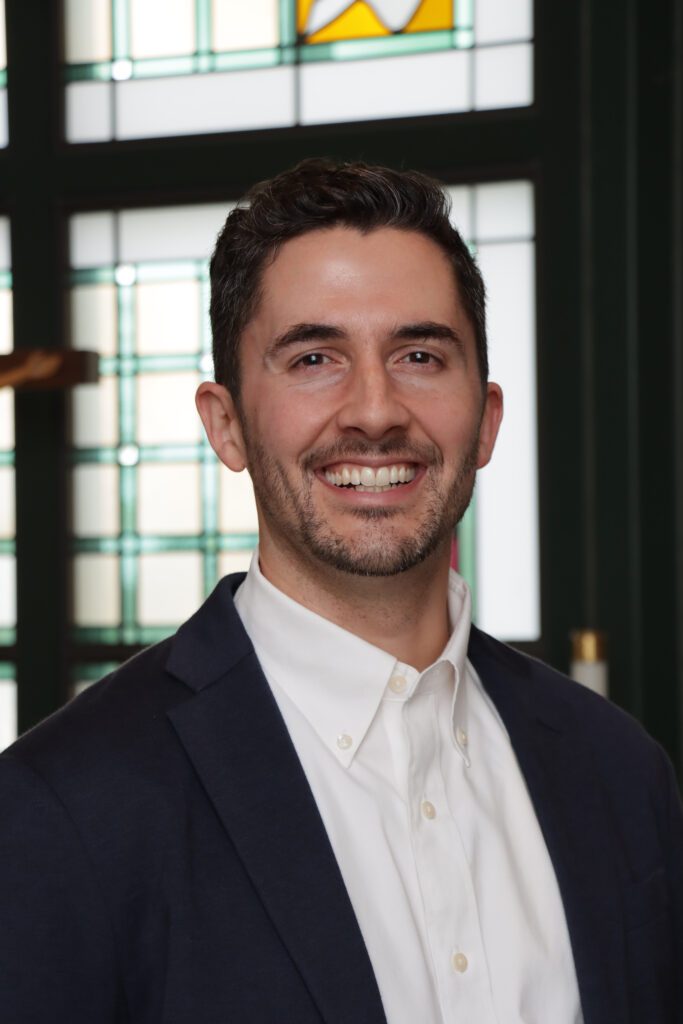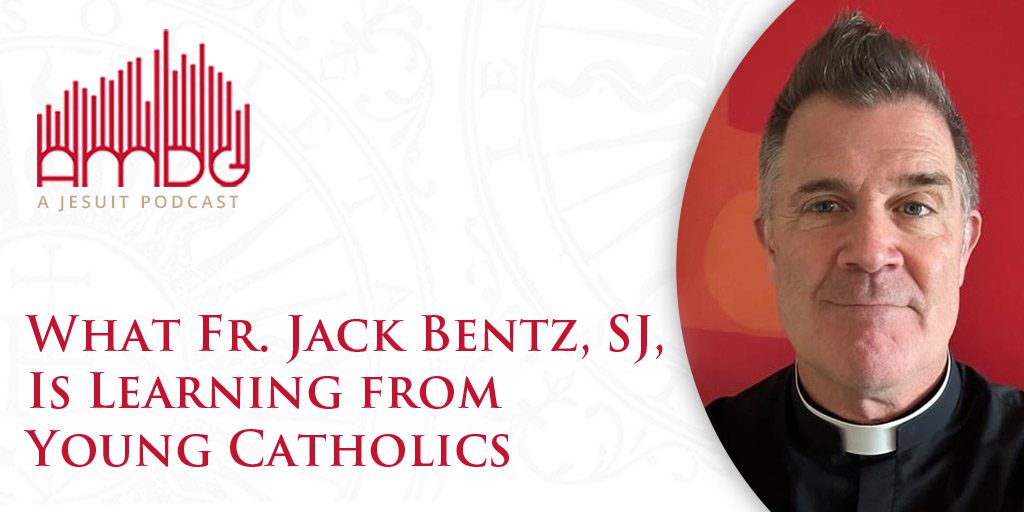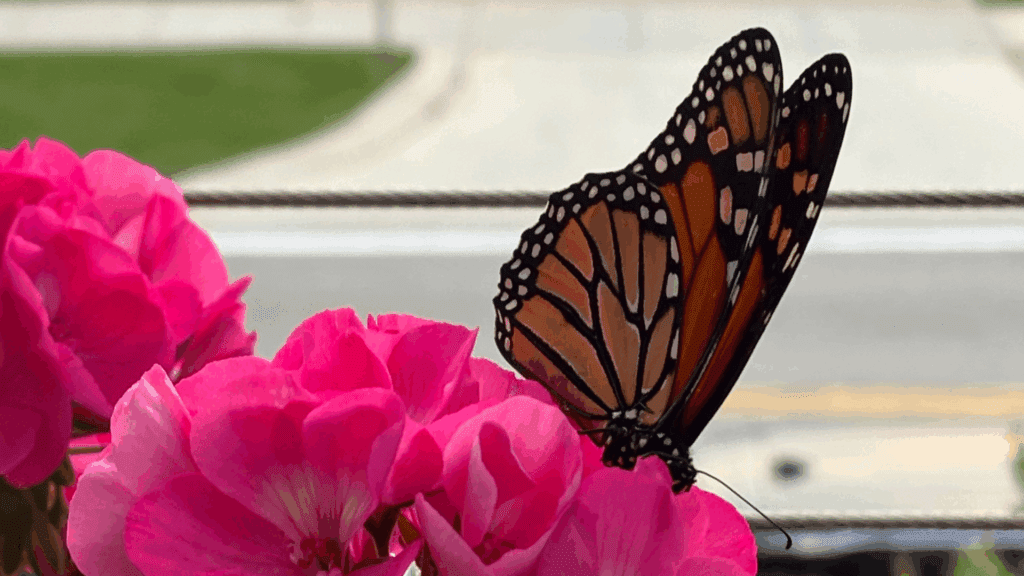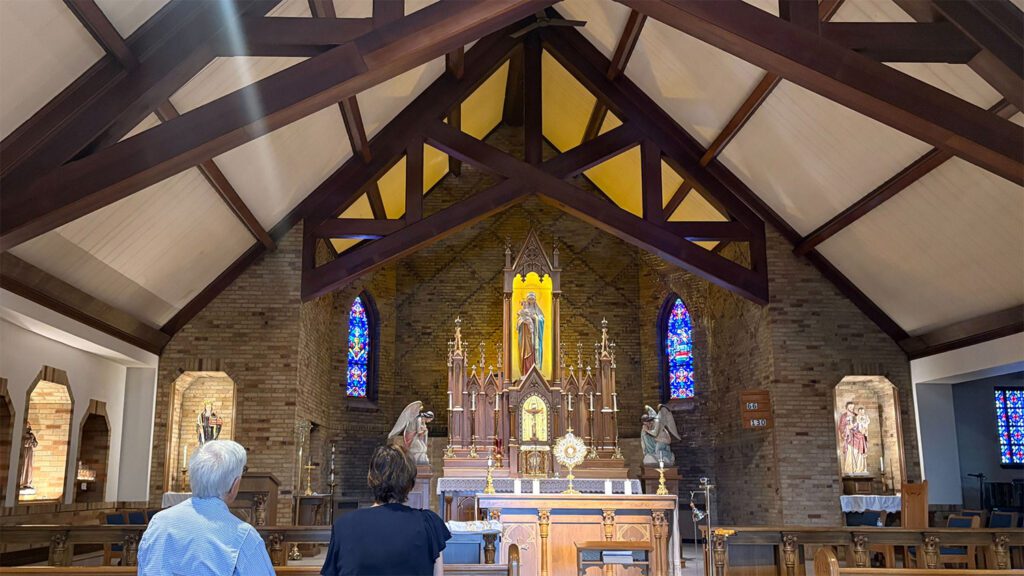
The bells tolled from Baltimore’s mother church, the Cathedral of Mary Our Queen, late on a Wednesday in mid-June, inviting all people of goodwill to a special Mass for the preservation of peace and justice. The Mass was offered in thanksgiving for the work of Catholic Relief Services, Catholic Charities and the Society of St. Vincent de Paul. These faith-based organizations with headquarters in Baltimore are doing the Gospel work of accompanying the marginalized and vulnerable, feeding the hungry, healing the sick, and advocating for peace, mercy and justice. These organizations and others like them find their essential work at risk.
Baltimore’s own Archbishop William Lori celebrated the Mass. I was struck by the words with which he began his homily: “We gather today in a spirit of deep gratitude and with no small amount of urgency.”
Archbishop Lori invited us to offer our thanks to organizations that “witness to the love of Christ in the flesh. In shelters and refugee camps, food pantries and war zones, they serve as the Church’s outstretched hand to the poor, the displaced, the hungry and the vulnerable.”
“We also gather with urgency,” Archbishop Lori continued, “because that work is under threat.” The archbishop quickly reminded us that the suspension of funding for the resettlement of refugees and international aid — not to mention the “fear and anxiety” provoked “among ordinary, hard-working immigrants” — demands our immediate, prayerful attention.
The Gospel that was proclaimed at Mass that day brought us back to the upper room where Jesus’ disciples gathered for fear of meeting his same fate. “It strikes me that in some ways, we too feel we are behind closed doors,” Archbishop Lori reflected, “hemmed in by decisions beyond our control, wondering how we go on.”
It was a powerful image — and I couldn’t help returning to the words with which the archbishop began his homily: gratitude and urgency. Do these words capture the disposition we require in this challenging moment?
Ignatian spirituality, of course, is built on gratitude. We begin each examen by expressing thanks to God. But more than that, we begin in gratitude because it lifts our gazes up and beyond the weeds of our problems and instead settles our hearts on the good — even when that good is hard to see. There’s a practical reason for this: By beginning in gratitude, by giving thanks for the good gifts God has given us, we dispose ourselves to then use them for God’s people, to build up God’s dream. We don’t start by wallowing in hardship and struggle — as understandable as such an act might be — but rather start by realizing, even in difficult times, that God still works through us. So, how might we respond?
This is the work of discernment: Where might we place our unique gifts at the feet of God and God’s people?
“Jesus doesn’t give the disciples a strategic plan or a budget,” Archbishop Lori reminded us. “He gives them his peace, and the Holy Spirit, and then sends them into the world — wounded, messy and unjust as it may be — to be bearers of reconciliation, healing and hope.” We might hear this as an invitation, as contemplatives in action, to practice urgent hope.
It may sound redundant to say how catholic the Mass felt, how much it fed my own Catholic imagination. Beneath the towering Gothic arches, the words of Scripture were proclaimed in both English and Spanish. Under the watchful eyes of holy women and men memorialized in stained-glass windows or as statues ensconced in shrines along the central nave, priests, bishops, seminarians, nonprofit leadership, donors, advocates, colleagues and friends — all of God’s own people — sang and prayed and chanted, voices reverberating off the old limestone. We could smell the burning incense as it rose high up and into the rafters. We could hear the rattling of the sabers as the Knights of Columbus rose from their pews.
As our gazes were lifted to God’s dream for creation, the veil between the temporal and the sacred was so thin as to be barely perceptible at all, so holy was that moment of communal prayer.
Perhaps that’s why I found myself so moved, struck again by the idea of a Catholic imagination that sees all things as emanating with grace and pointing toward the One from whom all graces flow. Because this Mass was about reminding us of God’s dream for all of creation. It was both an opportunity to ground ourselves in the troubling reality of the day while drawing strength from the reality that God is birthing something new into existence, even now.
The Catholic imagination, I believe, allows us to hold two realities in our minds at once: the suffering of the present and the glory of God’s own dream of peace and justice realized. We stand there — and we stood there quite literally at that particular Mass — between these possibilities. We express that gratitude to God for graces known and not yet named, and we commit as we read the signs of the time to act with urgency as we are uniquely able to breathe new life into God’s dream here and now.
“We remember that the Risen Jesus does not leave us behind locked doors,” Archbishop Lori concluded. “He enters, even now, with a word of peace and a command to go out. So let us go, not in despair, but with the strength of the Cross and the peace of Christ.”
Let us go, then, as the archbishop invites, cultivating that disposition of both gratitude and urgency, with a prayer for peace on our lips and God’s own compassion blooming in our hearts.





